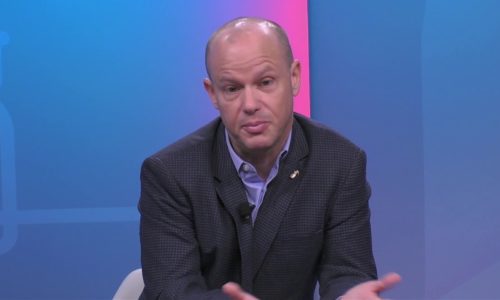Diagnosing an Eating Disorder |
Dr. Molly McShane, Psychiatrist and Medical Director for Monte Nido and Affiliates, explains a sign of an eating disorder is when overvalued body image becomes something that someone hyper focuses on and changes eating habits to where it can become dangerous.
She says to diagnose an eating disorder the physician has to ask the right questions and to understand what people are doing with food, whether they are eating in secret, which could be binge eating, for example.
Transcript
Wouldn’t this make it alarmingly easy for anybody to develop an eating an eating disorder and you don’t even realize it because of everything that’s around you well that’s a great point you know we’re in a society where image and you know looks are highly valued and so someone might become pretty fixated on their body on their weight and that’s one of the hallmark signs of an eating disorder once that that fixation that overvalued body image becomes something that someone hyper focuses on and then changes their eating habits to the point where it B can become dangerous can use a psychiatrist to pretty much tell let’s say you you have someone on your you’re treating them and I’m of course there’s a way to do this but can you pretty much tell when you’ve got somebody who has that sort of body dysmorphia if you will though that pretty much looks at things a certain way and you know okay I’ve got an issue coming in here right now which is gonna do what the whole fad diet and my looks are more important than anything else and here comes the eating disorder well you know actually it’s it’s not that easy to diagnose because quite often you can’t look at somebody and know that they have an eating disorder hearing it come back from them hearing a lot of their what when you talk to them right you can’t see it but when you start talking to them doesn’t it sort of become a little bit obvious with a little bit more than that you’re you’re kind of wandering into that territory right well and it takes some probing and some experience there’s a lot of times it goes undiagnosed or misdiagnosed but really asking the right questions and understanding what people are doing with the food whether they’re eating in secret which would be potentially binge eating you know eating large quantities maybe restricting down what happens in anorexia as well as in bulimia people might choose only certain food groups or or it might start as sort of the clean eating or gluten-free and start eliminating certain components of the food and that can really start running into big problems you








